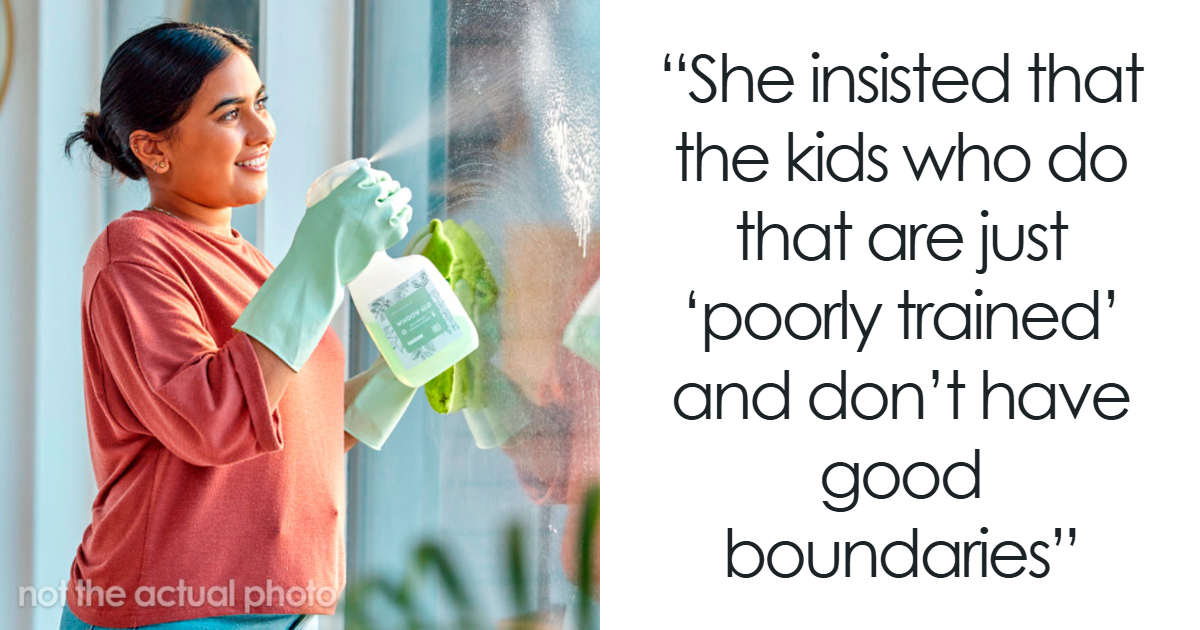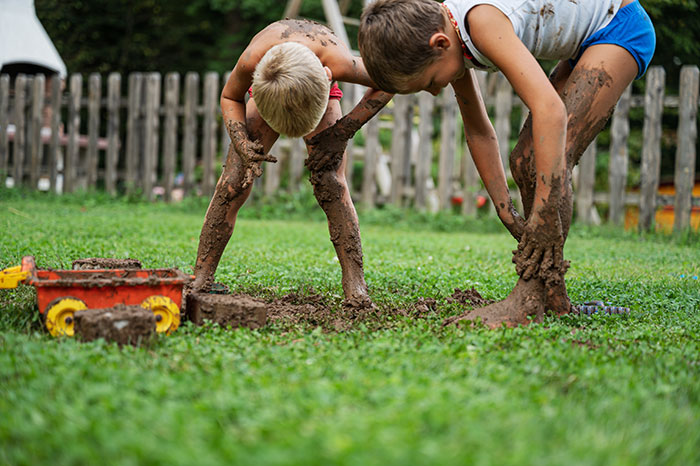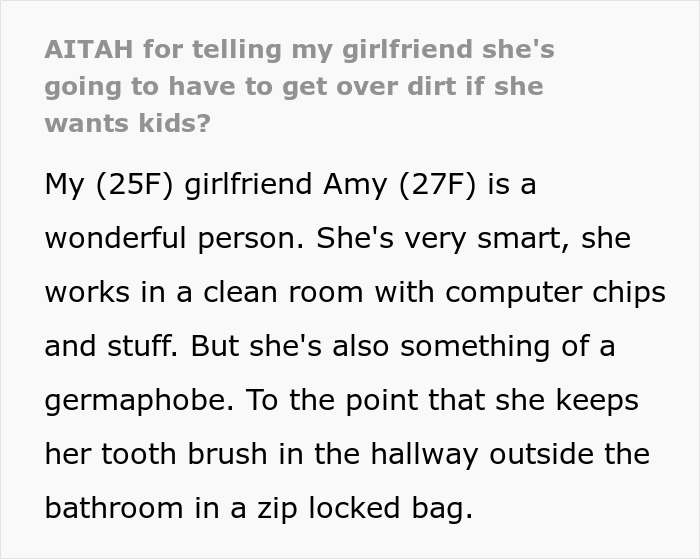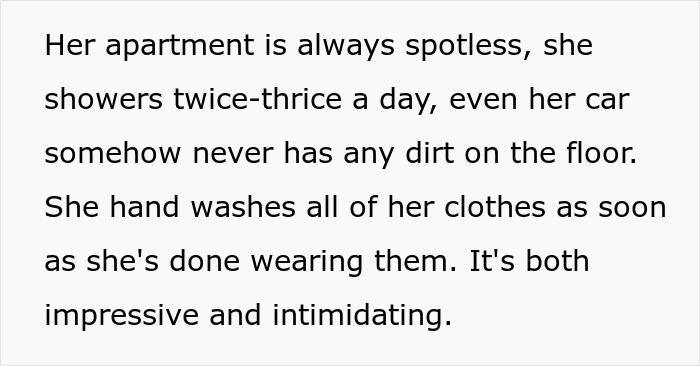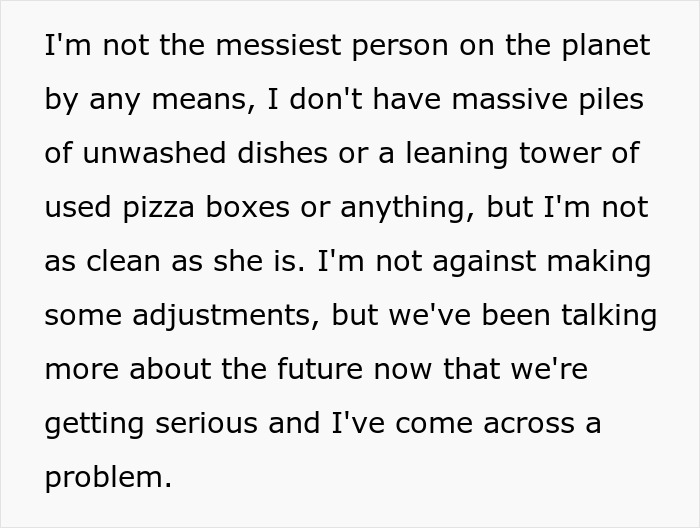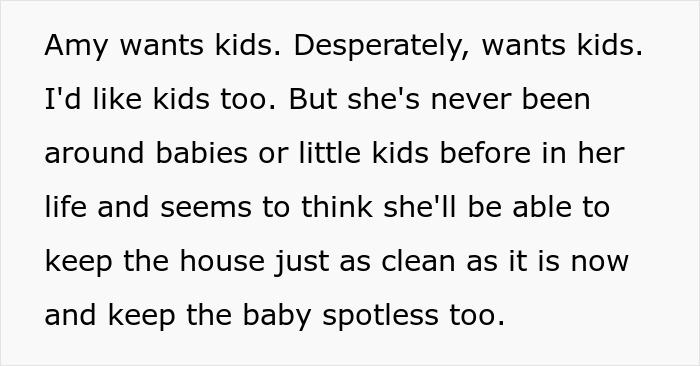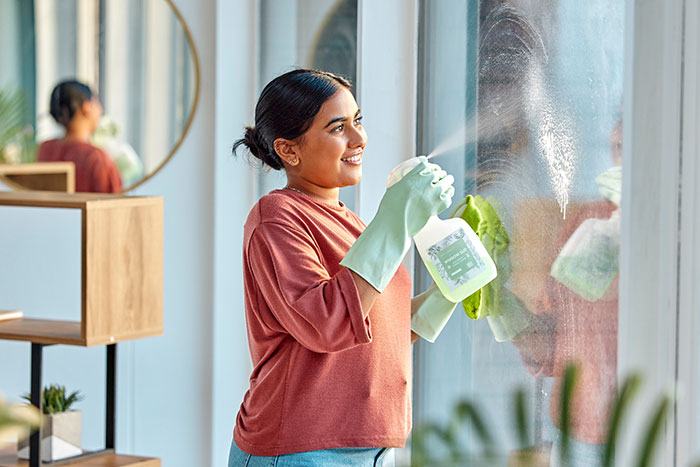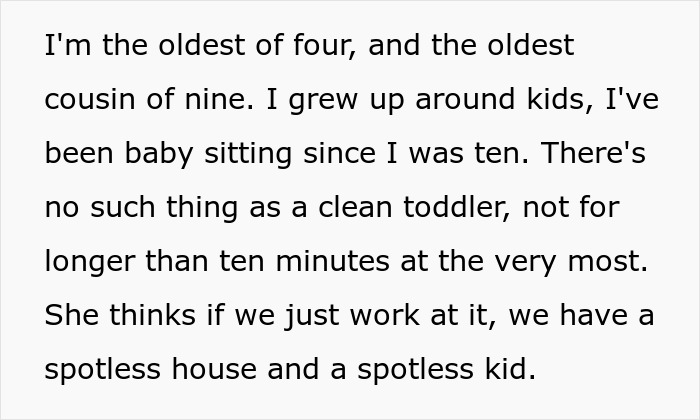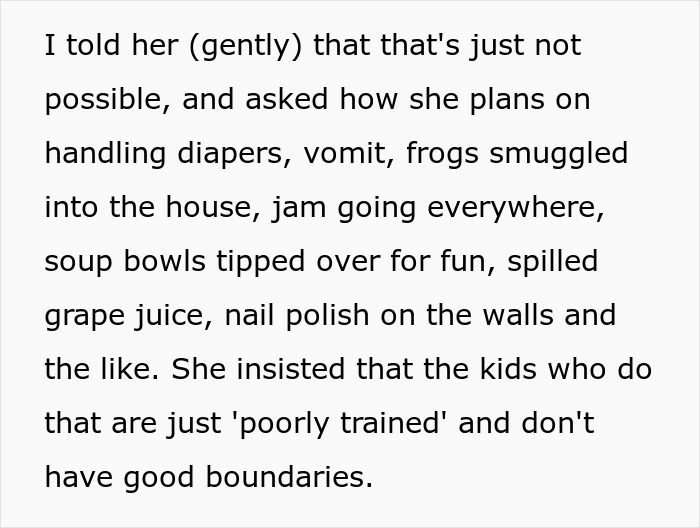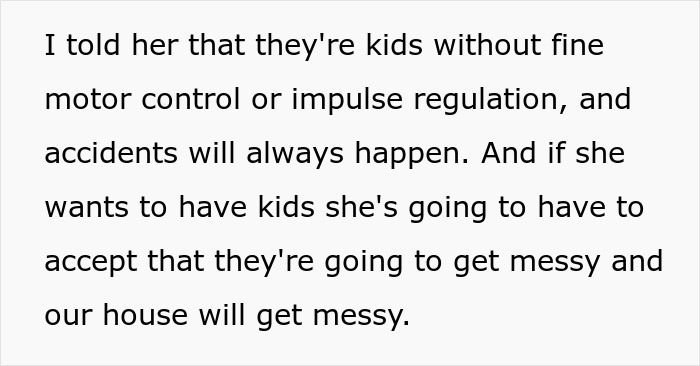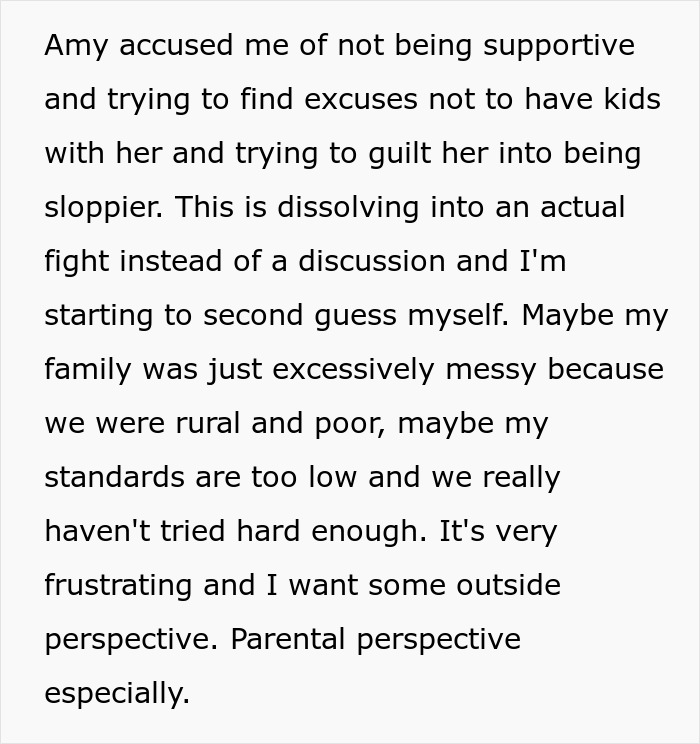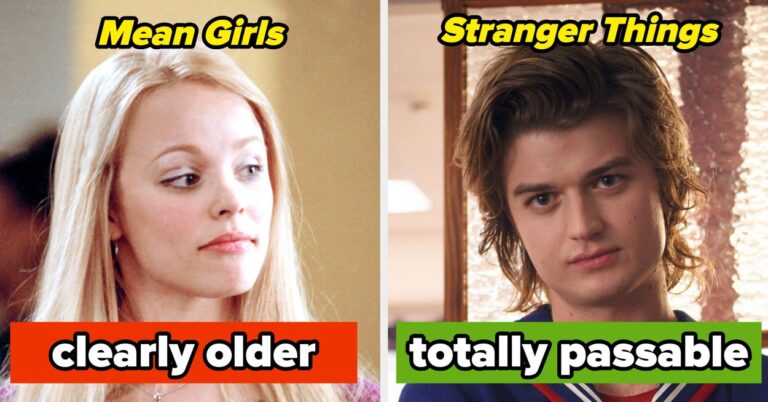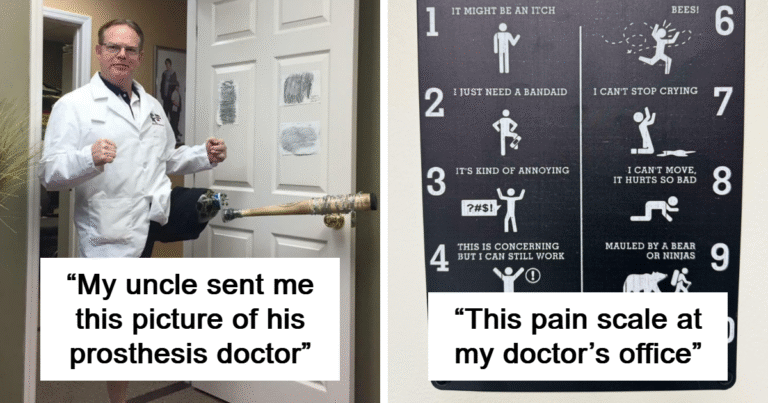“There’s No Such Thing As A Clean Toddler”: Woman’s Warning Sparks Relationship Fight
Any parent who says their house is neat, tidy and free of germs and dirt 24/7 either deserves a gold medal. Or they’re lying. Where there are kids, there is chaos. Juice spills on the sofa, muddy footprints across the floor, food on the walls, or worse. Your living quarters will likely never be the same again after you bring new life into this world.
A woman is facing a conundrum with her ‘germaphobe’ girlfriend. The couple really wants to have children but one of them can’t handle dirt or grime. Like not even a speck of it. The more messy of the two has told her better half to get over her fear before even considering becoming a parent. And the proverbial sh*t has now hit the fan.
Getting dirty and making a mess is a big part of growing up
Image credits: Gajus-Images (not the actual photo)
But when one woman reminded her ‘germaphobe’ partner of this, it didn’t go down well
Image credits: YuriArcursPeopleimages (not the actual photo)
Image credits: Familiar_Speaker_481
Dirt is actually GOOD for children, and here’s why…
Parents once went to the ends of the earth to keep their kids clean and away from dirt. But research from more recent years shows that doing so can do more harm than good. In fact, getting dirty is great for children. All that mud and soil is packed with germs. And before you turn your nose up, let us explain.
We’re talking about good germs, or microorganisms. The type that can train an immune system and build resilience against a range of illnesses or allergies.
Jack Gilbert is a scientist who studies microbial ecosystems at the University of Chicago. He’s also a dad and the co-author of “Dirt is Good: The Advantage of Germs for Your Child’s Developing Immune System.” Gilbert believes that one of the worst mistakes parents make is keeping their kids too clean.
“Some of the main things are over-sterilizing their environment, keeping their children from ever getting dirty. So going out into the backyard and playing in the mud, and then as soon as they’re filthy, bringing them in and sterilizing their hands with antiseptic wipes, and then making sure that none of the dirt gets near their faces,” says the expert.
“Also, keeping them away from animals,” he adds. “The dogs and cats, sure, but also, other animals. It’s fine to wash their hands if there’s a cold or a flu virus around, but if they’re interacting with a dog, and the dog licks their face, that’s not a bad thing. In fact that could be extremely beneficial for the child’s health.”
As we explained earlier, the exposure to germs helps build and strengthen the immune system. And Gilbert says this even applies to things we might find gross.
He also thinks the infamous 5-second rule is rubbish. Because germs attach themselves to things within milliseconds. So what should you do if your baby’s pacifier falls on the floor?
“Lick it,” advises Gilbert, rather controversially. “A study of over 300,000 children showed that parents who licked the pacifier and put it back in — their kids developed less allergies, less asthma, less eczema. Overall, their health was stronger and more robust.”
There’s even evidence that playing outdoors, or in the mud, can help fight depression and anxiety. And more…
The act of moulding and kneading materials like mud or sand can also help children develop the way their senses and movement interact, known as sensorimotor development, says Francesco Vitrano, a child neuropsychiatrist, psychotherapist and lecturer at the University of Palermo, Italy. And this allows the child to gradually understand his or her bodily signals.
Image credits: Allan Mas (not the actual photo)
“A messy kid is a happy kid”: People warned the woman not to have children with her partner
Thanks! Check out the results:
Total votes ·
